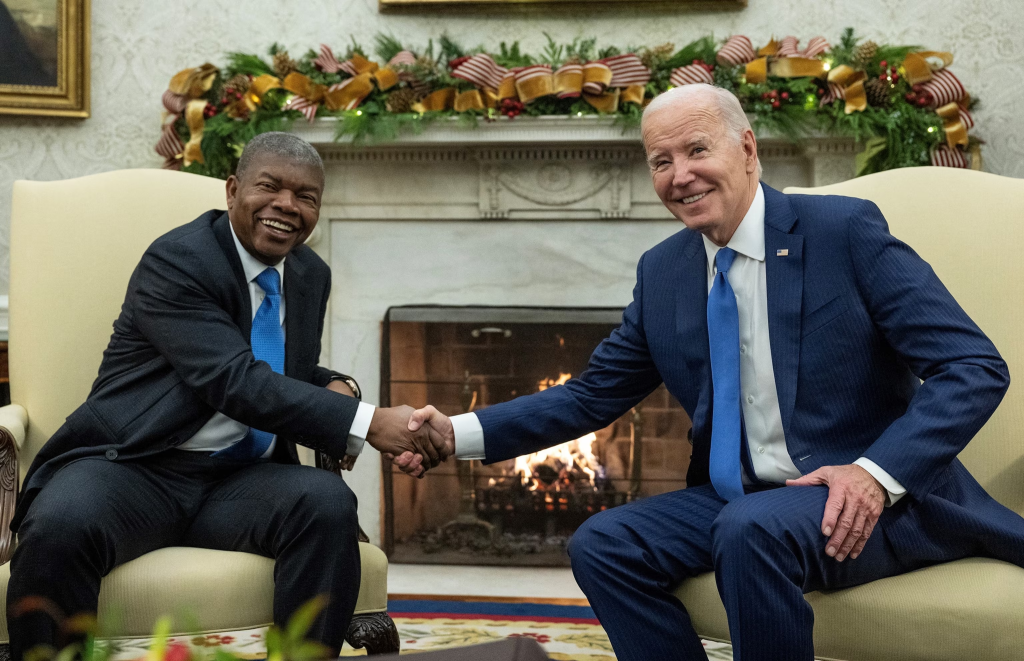United States President Joe Biden arrived in Angola for a two-day visit centred on a major infrastructure project, marking the first official visit by a sitting US president to the former Portuguese colony.
The visit highlights the United States’ commitment to strengthening ties with African nations in the thick of growing Chinese influence on the continent.
Biden met Angolan President João Lourenço on Tuesday, with discussions focusing on trade, security, and investment.
Central to their talks was the Lobito Corridor project, a US and EU-backed initiative to rehabilitate a railway line that facilitates the export of minerals from the Democratic Republic of Congo (DRC) and Zambia via the Angolan port of Lobito.
Speaking ahead of the visit, US National Security Communications Advisor John Kirby described the project as a “game changer for US engagement in Africa,” emphasising its potential to bolster economic growth and stability in the region.

On Wednesday, Biden is expected to travel to Lobito for a summit with leaders from Angola, Tanzania, Zambia, and the DRC, focusing on infrastructure investment.
The Lobito Corridor project competes with a similar Chinese-backed railway aimed at transporting minerals to a Tanzanian port, reflecting broader geopolitical tensions over influence in Africa.
During his visit, Biden will also address Angola’s historical ties to the transatlantic slave trade. On Tuesday, he is scheduled to deliver remarks at the National Slavery Museum in Luanda, acknowledging Angola’s pivotal role in the slave trade while emphasising a future of shared prosperity between the US and Angola.
The US has pledged $229,000 to support the museum’s restoration. Biden’s arrival included a meeting with Wanda Tucker, a descendant of the first enslaved child born in the United States, whose ancestors were brought to Virginia from Angola in 1619.
The visit also draws attention to Angola’s human rights record, with organisations such as Amnesty International urging Biden to address allegations of police abuses and the arbitrary detention of government critics.
Human Rights Watch has called for a public commitment from President Lourenço to investigate rights violations and hold perpetrators accountable.


